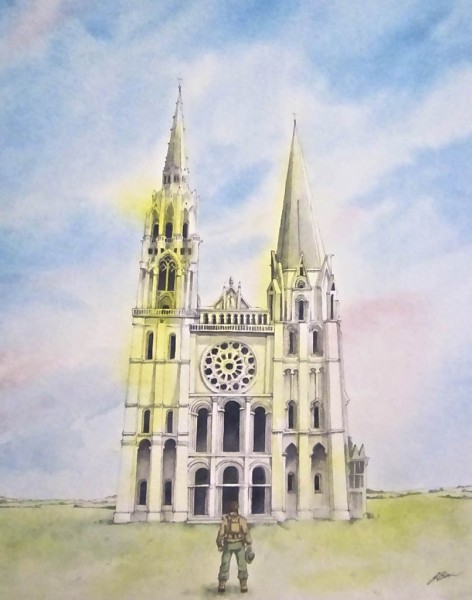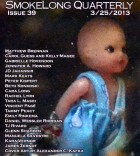Half-eaten bowls of meager rations still rested where they’d been hurriedly abandoned, the bread and cheese desiccated and colored with mold, the cups once warmed with coffee now filmed over. The pathway that over the centuries the penitent had crawled in supplication had become a gathering place, a communal table to its sheltered. But this sanctuary, too, the war had confiscated. Chartres was a ghost town, now after the German retreat, the bridges, roads, and buildings surrounding the cathedral mined in twenty-two places with explosives, enough tonnage to bring down in seconds what four generations had toiled to build.
Toward the end of his first day disarming the mines, Corporal Penner had seriously considered detonating the rest of them, letting the cathedral come down. German bomb-makers were notorious tricksters, innovative, always looking for new ways to fool army engineers.
Penner had missed a hidden tripwire in one, discovered it when a button on his sleeve caught on the wire, and only by pure dumb luck didn’t pull hard enough to trigger the fuse. He’d stopped then for the day, lain awake well into the night waiting for the adrenaline to wear off; by morning, a tremor remained. His hands weren’t shaking, he could still do his job—the tremor was internal, as if his body were impatient, restless, distracted. All night, he had considered the value of art, of human construction and history. He had weighed the lives of four past generations against his own. No one else was there to get hurt; no one else was there to know.
Corporal Penner had finally fallen asleep planning to detonate the remaining explosives the next day, unwilling to risk his life to save no others.
But in the morning light, Penner had beheld the cathedral with new eyes. Golden beneath the dawn sun, its spires reached toward heaven, the majestic skyline of a culture, and Penner walked toward it imagining himself a worshipper coming to mass, a refugee seeking sanctuary, a sinner seeking redemption. He had heard reports from the Italian theater of the bombardment of the abbey at Monte Cassino, and just two months ago Hitler himself had been unable to order the destruction of Florence, preserving the Ponte Vecchio—his favorite bridge—despite the tactical necessity of its demolition. The atrocities of war were no secret to the world, but there was still an honorable way to wage war. Penner resumed his work, using the lingering tremor’s reminder to be more cautious and thorough.
Months before, Penner had fought another kind of tremor, fatal to anyone working with explosives. Earlier in the war, he had coped with the strain of prolonged focus in his work by drinking coffee almost constantly to stay awake. Then his army division ran out. The quartermasters promised to get more soon, but soon was too late. For three days, Penner excused himself from duty, his hands shaking violently, piercing aches sprinting through his head. When the withdrawal was over, the coffee supply returned, but Penner was done.
This new tremor from the adrenaline of his close call stayed with Penner through the rest of the job. Mine after mine, he worked his way bridge and road around the cathedral, disarming each device then storing the components until his team could dispose of them. Now, the cathedral safe, he entered the sanctuary, the first to set foot inside since the town’s evacuation, the half-eaten meals still where they’d been left. He’d felt the pain of shortage, even as an American soldier, and saw the urgency of flight in this abandonment.
Walking slowly down the center aisle, Penner was alone in the massive sanctuary. A cooling evening breeze entered through the empty windows like a breath, the stained-glass removed and stored away. Sandbags were stacked along the walls, and further gaps had been opened in the ceiling by the trajectory of artillery shells, though none had managed to detonate inside. It was some kind of miracle, Penner understood, that the cathedral still stood against this bomb-leveled landscape, and for the first time he saw himself as an instrument in a hand beyond the U.S. Army. One thing he had always liked about working on a bomb squad was never having a supervisor looking over his shoulder. He felt an unexpected peace at finding this freedom no longer true, nor wanted. Standing in the center of the medieval labyrinth at the cruciform crossing, evening sunlight slanting brightly through the empty window frames, he realized that the tremors had gone.



 The SmokeLong Grand Micro Contest (The Mikey) is now an annual competition celebrating and compensating the best micro fiction and nonfiction online.
The SmokeLong Grand Micro Contest (The Mikey) is now an annual competition celebrating and compensating the best micro fiction and nonfiction online.